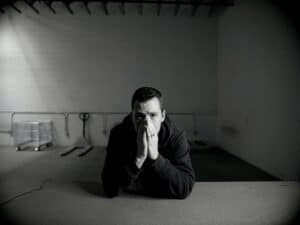You know how you have that one friend that you can talk about anything with? You can tell them your deepest secrets, and your most personal truths. What makes them so special? Maybe you’ve known them since childhood, maybe you went through something together, or maybe you just instantly hit it off.
Either way, chances are that no matter how you got close to them, it’s not the reason that you stay close to them. This person probably makes you feel like your feelings are valid and important, like YOU are important, and makes an effort to check on you and how you’re feeling. So if our best friends do this for us, why don’t we do it for ourselves?

May is mental health awareness month, and we want to make sure that you are in fact, aware. Aware of how to check in on yourself, that is. Some of us were blessed with a high EQ (emotional quotient, aka emotional intelligence), and some of us…well, we need a little more help deciphering our feelings.
You might think that there always has to be a catalyst to end up in a mental health crisis. Some major life-changing event that you would be SURE to notice, because it alters not only your mental health, but your life as a whole. Unfortunately, mental illness isn’t cut and dry. It comes in degrees, and it can often sneak up on you before you know what, or why, it happened.

Our friends and family might notice changes in us before we do. They are unbiased observers who aren’t privy to our internal dialogue and predisposition. They either see the same person they knew, or they see someone they don’t quite recognize. All the while we’re telling ourselves “I’m just having a few bad days this month.” The problem is…until WE come to terms with the fact that we are not okay, we can’t take the steps to begin to be okay again.
So this month, conduct a mental health check in with yourself. How are you really doing? Are you sleeping well? Are you eating well? Are you taking care of your body by exercising and utilizing proper hygiene? Are you struggling to focus? Do you struggle to find joy in things you used to love? Do you lack motivation? Are you isolating yourself? Do you feel constantly disconnected? Worried? Anxious?
These are just some of the questions that you should be asking yourself. Be honest with your answers, and don’t be scared to ask for help. For more information and other warning signs, visit The National Alliance on Mental Illness website.
